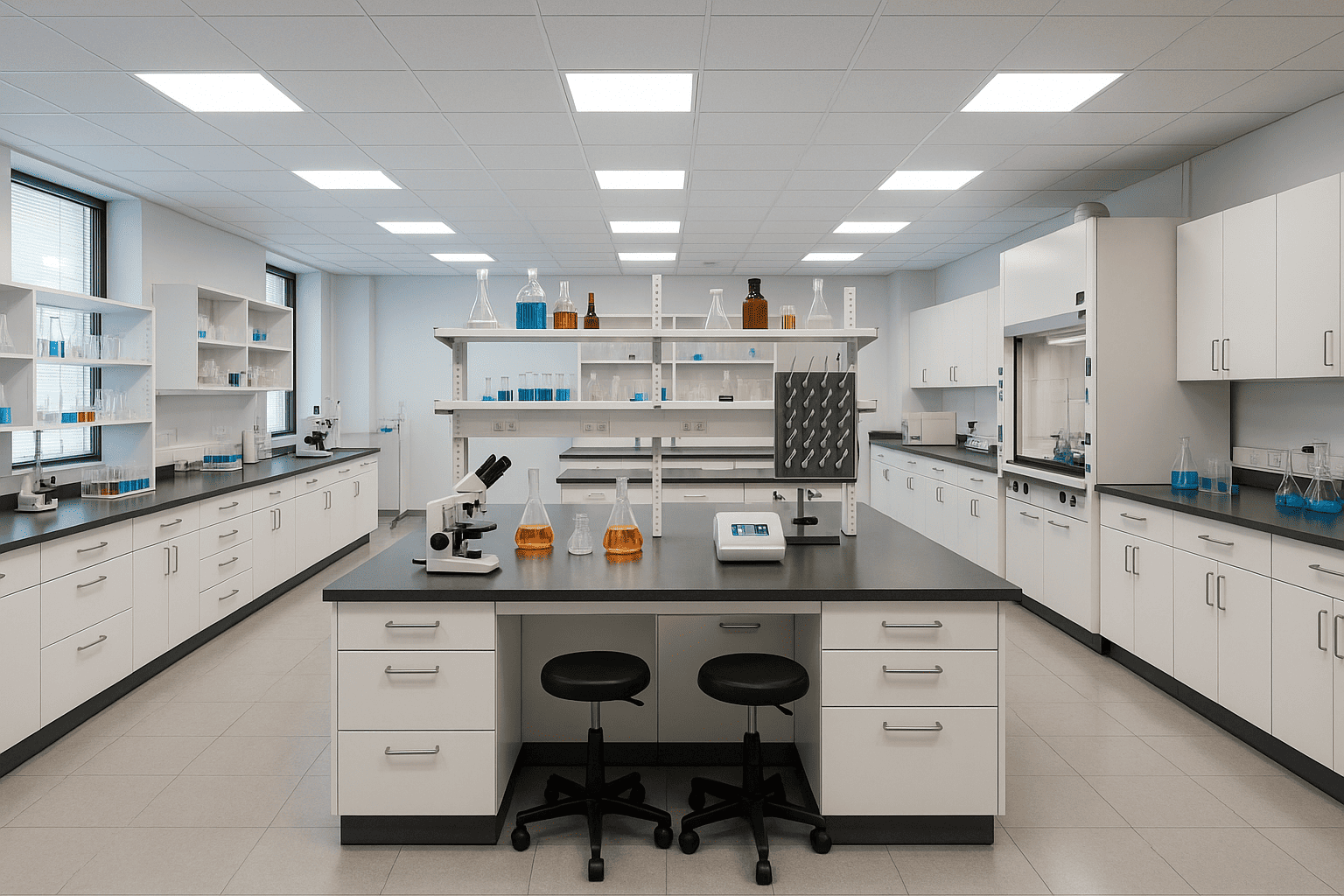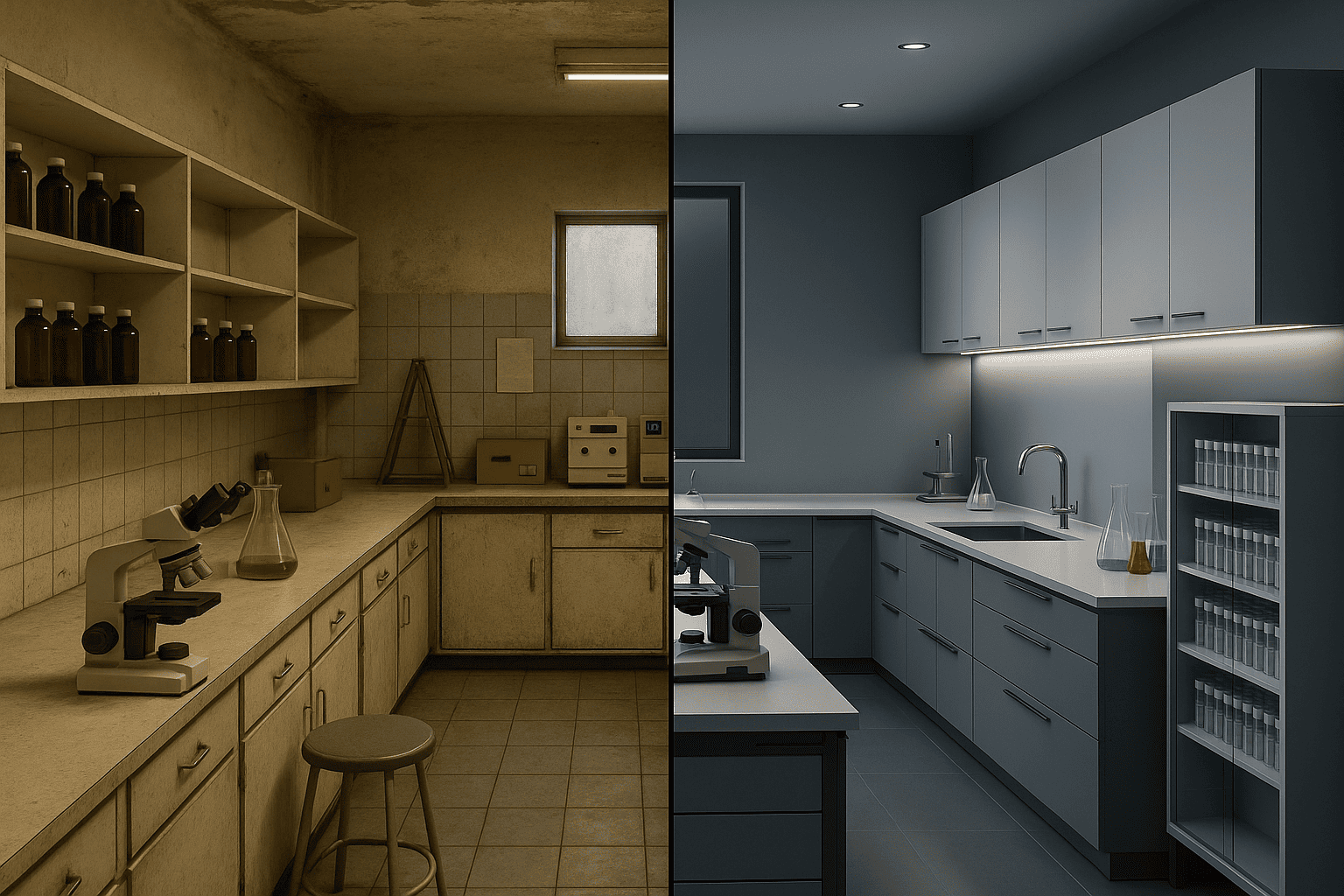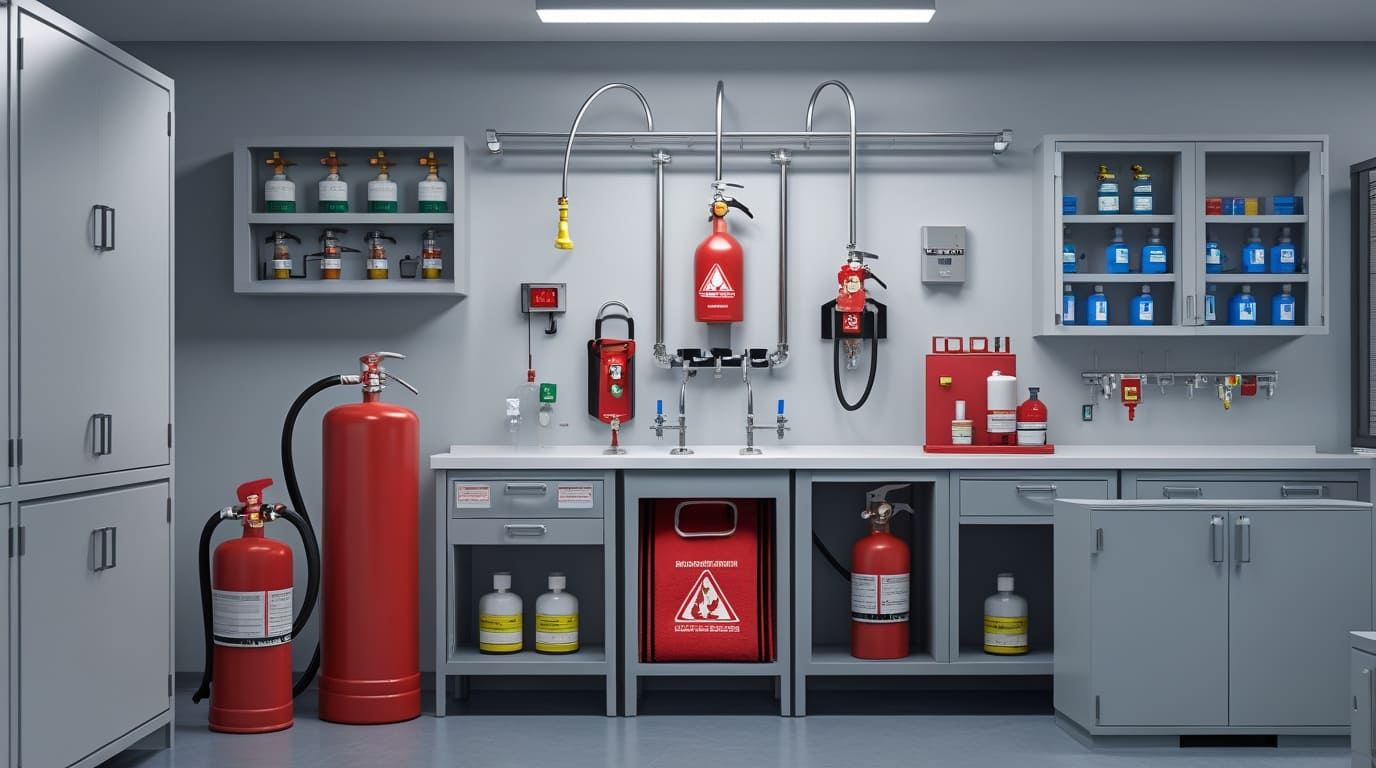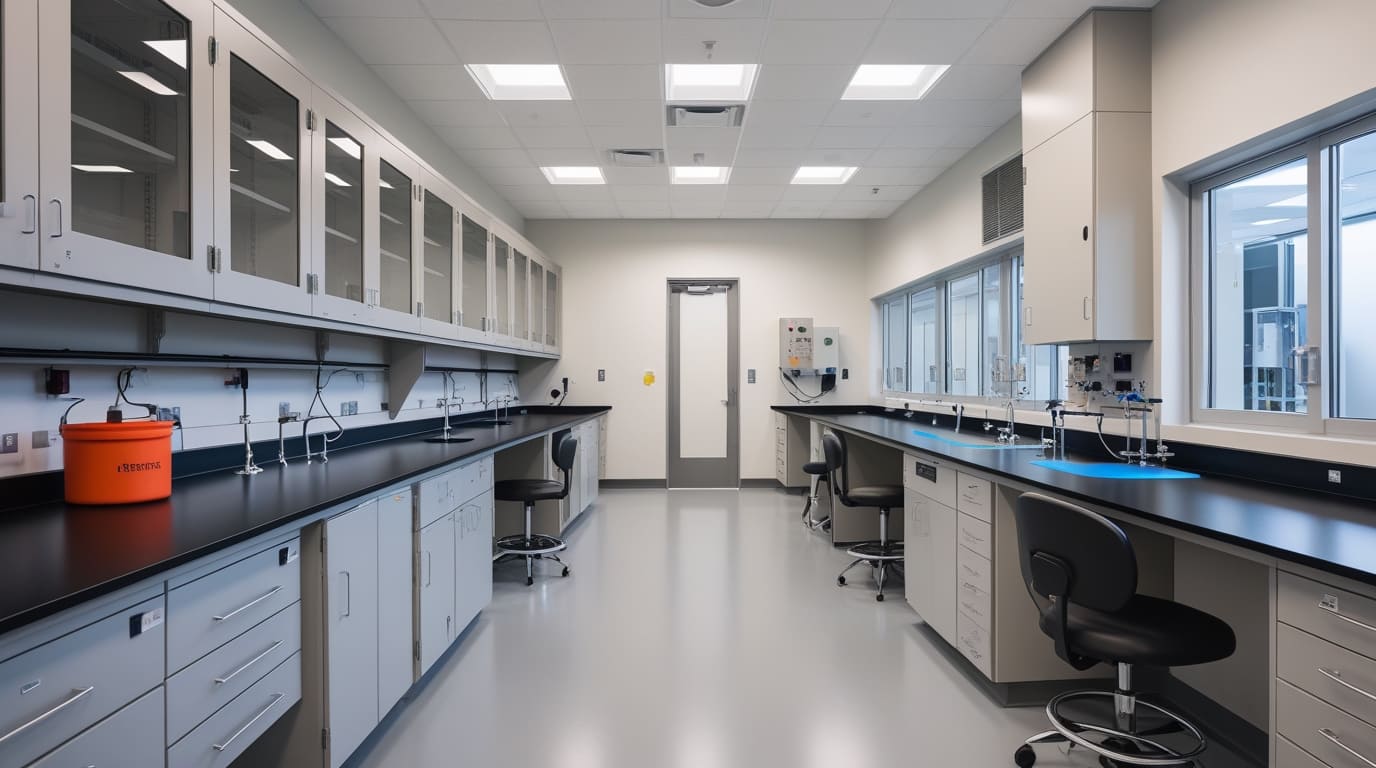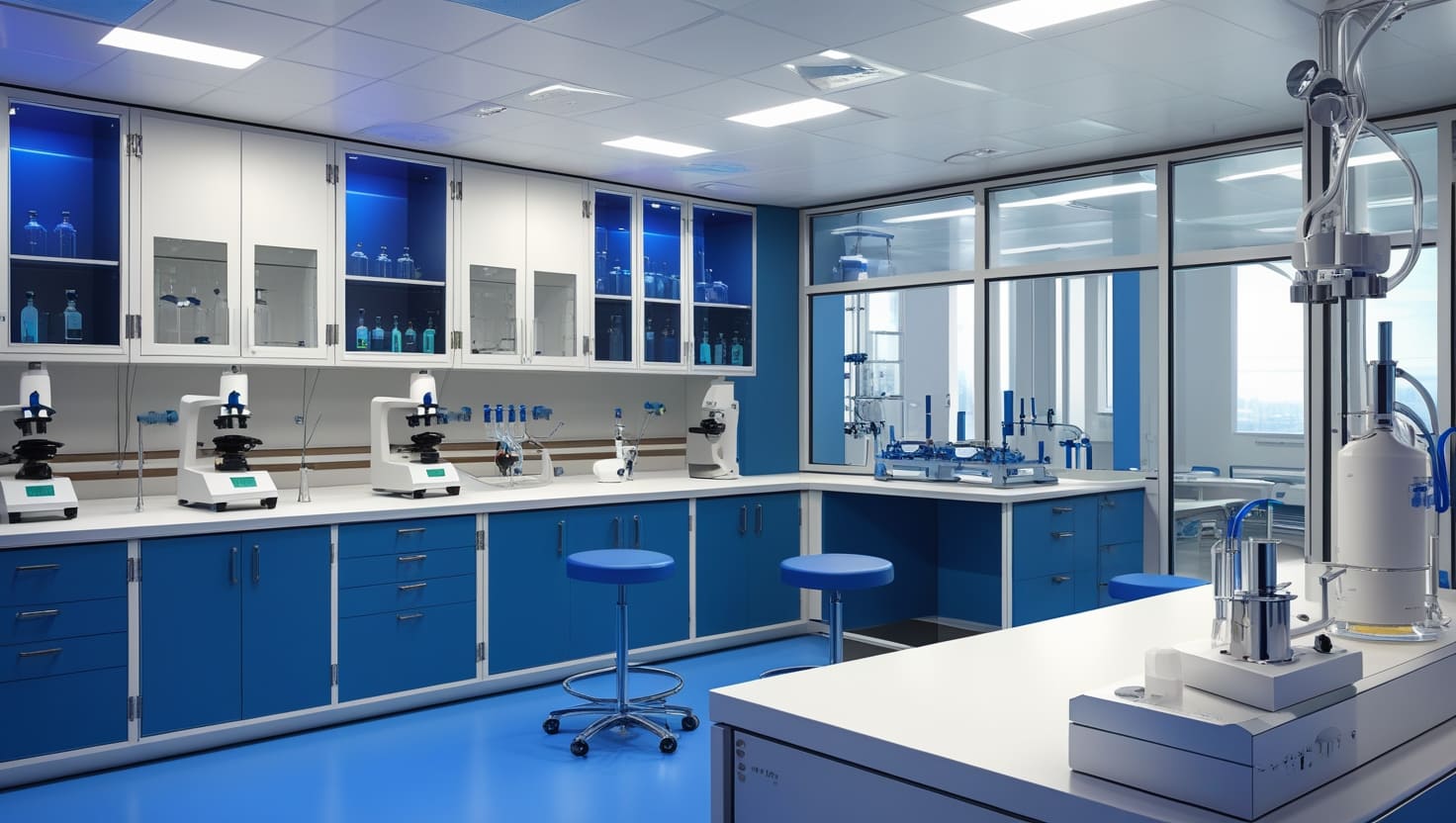
When planning a new laboratory, one of the biggest decisions you’ll face is choosing between Modular Lab Design and Custom Lab Design. Both options have their own strengths and limitations, and the right choice depends on your needs, budget, and future goals. Let’s break it down in simple terms so you can decide what works best for your project.
What is Modular Lab Design?
Modular Lab Design is like building your lab with ready-made blocks. Think of it as using pre-designed laboratory furniture and layouts that can be quickly installed, adjusted, or moved when needed.
For example:
- Workbenches, storage cabinets, and fume hoods are designed in standard sizes.
- These modules can be rearranged if your research changes.
- Installation is faster compared to a fully customized lab.
This design style is popular in labs where flexibility and speed are top priorities.
What is Custom Lab Design?
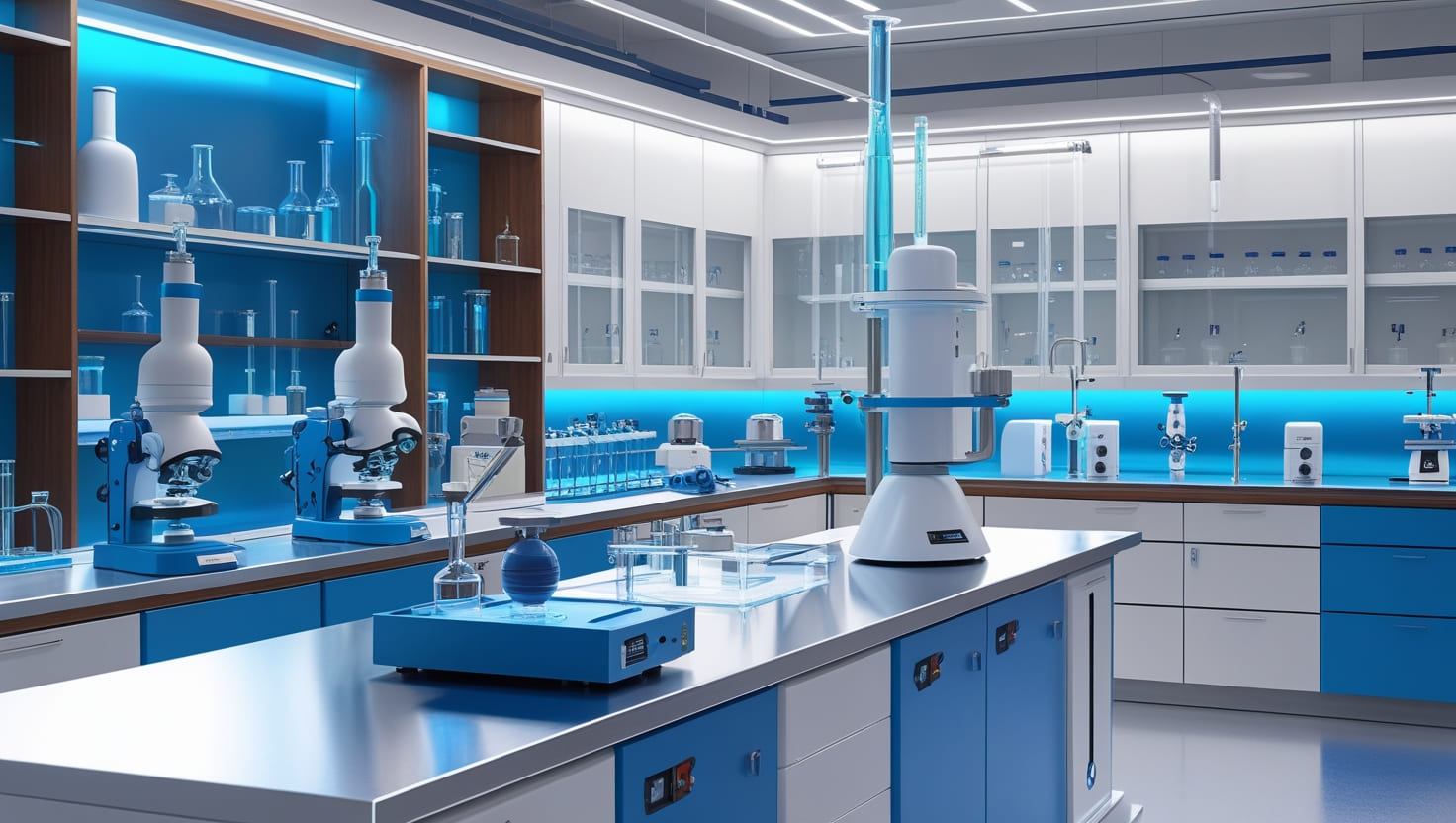
Custom Lab Design is more like tailoring a suit. Everything is designed according to your unique needs. From the size of work surfaces to the placement of utilities, every detail is made to fit your exact specifications.
For example:
- If your lab needs a special setup for heavy equipment, custom furniture can be designed for it.
- The layout can be optimized for very specific workflows.
- Materials and finishes can be chosen to match safety or regulatory requirements.
This approach is perfect for labs with very specialized research or production requirements.
Benefits of Modular Lab Design
1- Flexibility – If your projects change often, modular furniture and layouts can be rearranged without heavy renovation work.
2- Faster Setup – Since modules are pre-designed, installation takes less time compared to custom labs.
3- Cost-Effective – Modular setups usually cost less, as they avoid the expense of custom-made designs.
4- Easy Expansion – Adding new modules in the future is simple, which makes scaling your lab operations easier.
Benefits of Custom Lab Design
- Tailored to Your Work – Every corner of the lab is built around your specific needs.
- Long-Term Value – A custom lab may cost more upfront, but it provides high efficiency for specialized operations.
- Optimized Space – No wasted corners; every inch of the lab is utilized effectively.
- Compliance Ready – Easier to meet industry-specific regulations since everything can be designed accordingly.
Modular vs. Custom Lab Design: Key Differences
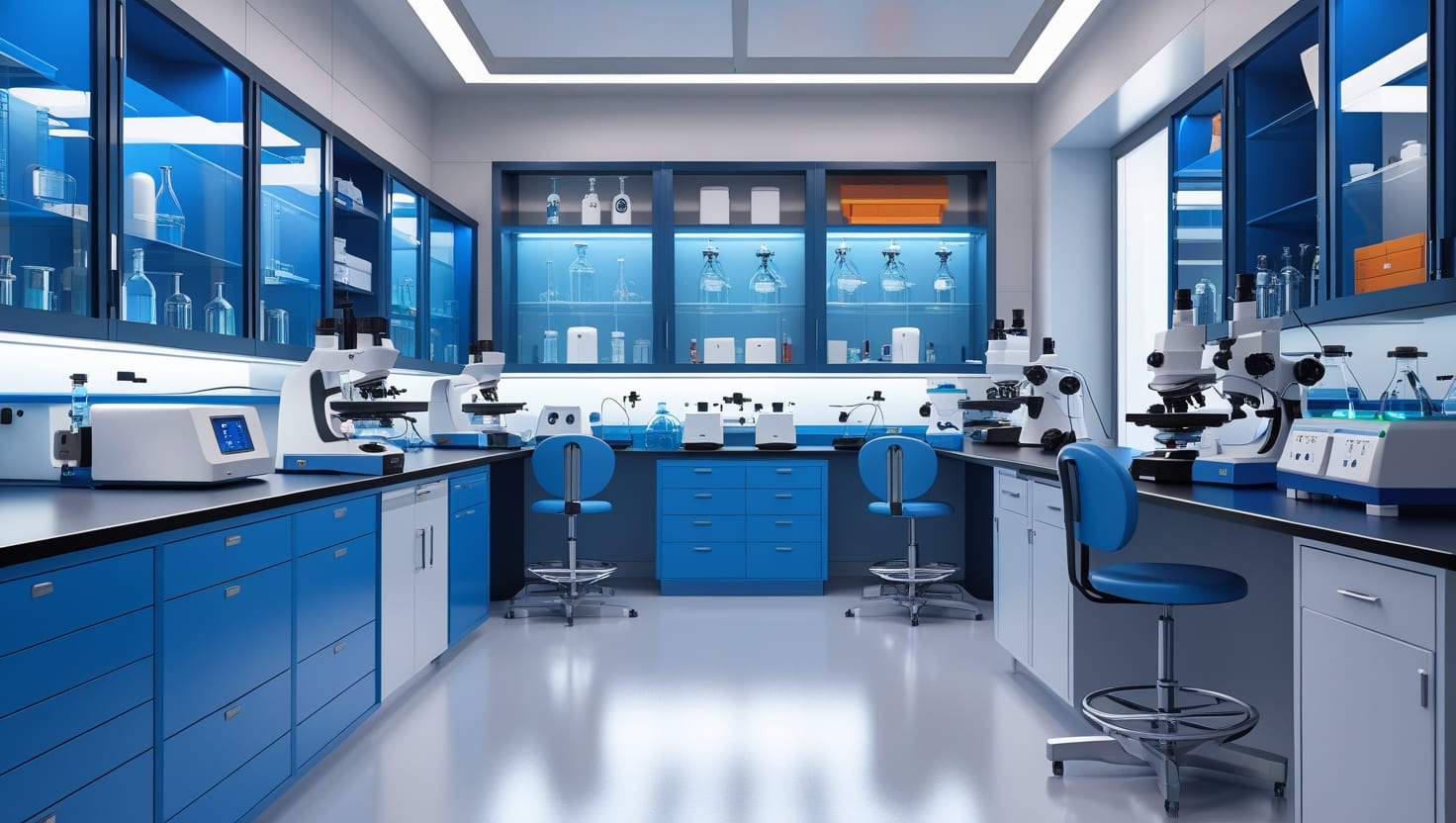
When comparing Modular vs. Custom Lab Design, it’s helpful to look at their differences side by side:
| Feature | Modular Lab Design | Custom Lab Design |
| Cost | More affordable | Higher investment |
| Setup Time | Quick installation | Longer due to planning & construction |
| Flexibility | Can be moved or rearranged | Fixed, not easily changed |
| Best For | Labs with changing needs | Labs with highly specific workflows |
| Future Expansion | Easy to add more modules | Requires planning and possible renovations |
Which Option is Right for You?
Here’s the thing: the choice between Modular vs. Custom Lab Design depends on your situation.
- If your lab handles multiple research projects that change frequently, modular is the smarter choice. You can easily reconfigure the space without major expenses.
- If your work requires a highly specialized setup, custom design will give you the exact solution you need, even if it costs more.
Some laboratories even use a mix of both approaches. For example, they install modular benches for flexibility but choose custom-built storage or utility areas for specific tasks.
Things to Consider Before Deciding
Before you make a decision, ask yourself these questions:
1- What is my budget? – Modular is usually cheaper, but custom can be a better long-term investment.
2- How soon do I need the lab ready? – If time is short, modular will save you weeks or even months.
3- How often will my research change? – Frequent changes mean modular is the safer choice.
4- Do I need specialized equipment? – If yes, custom might be necessary.
5- What are the compliance requirements? – Industry regulations sometimes demand tailored setups.
Real-World Examples
- Pharmaceutical Research Labs often prefer modular setups because they need to reconfigure spaces for different projects.
- Chemical Analysis Labs may lean towards custom setups, as they require specialized fume hoods and heavy-duty benches.
- Educational Institutions sometimes use modular designs to allow for flexible teaching environments.
Why Work with Experts
Whether you choose modular or custom, professional guidance is crucial. Designing a lab isn’t just about furniture – it’s about workflow, safety, and efficiency. Working with trusted suppliers ensures you get a design that supports your work for years to come.
For reliable laboratory design and setup solutions, you can check out:
These platforms specialize in laboratory setups and can guide you through the decision-making process.
Final Thoughts
The decision between Modular Lab Design and Custom Lab Design comes down to your goals. If flexibility, cost savings, and quick setup are most important, modular is the way to go. If precision, specialization, and long-term efficiency matter more, custom design is worth the investment.
By carefully considering your budget, timeline, and research requirements, you’ll be able to choose the right design approach and build a lab that works for today – and adapts to tomorrow.





